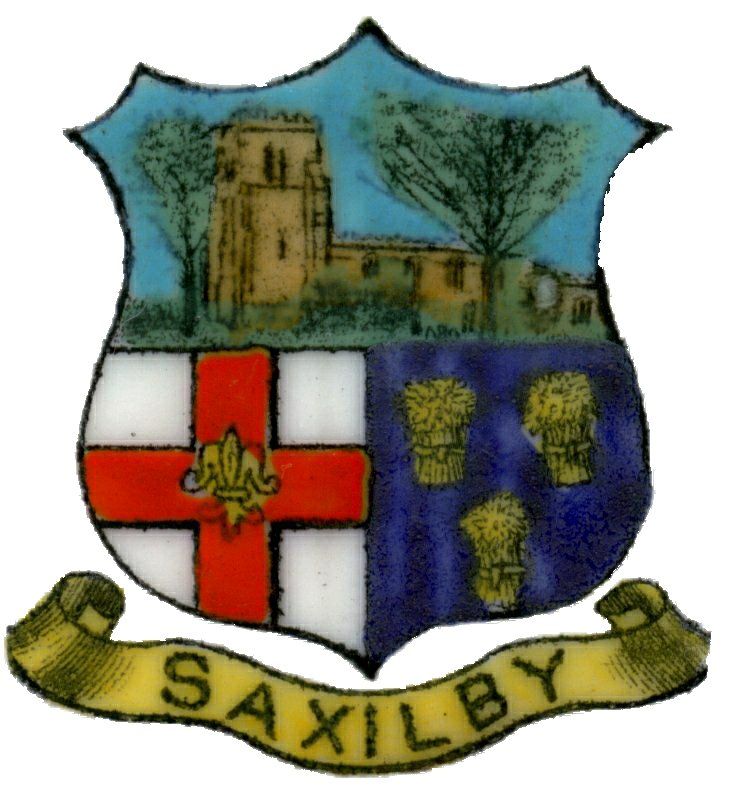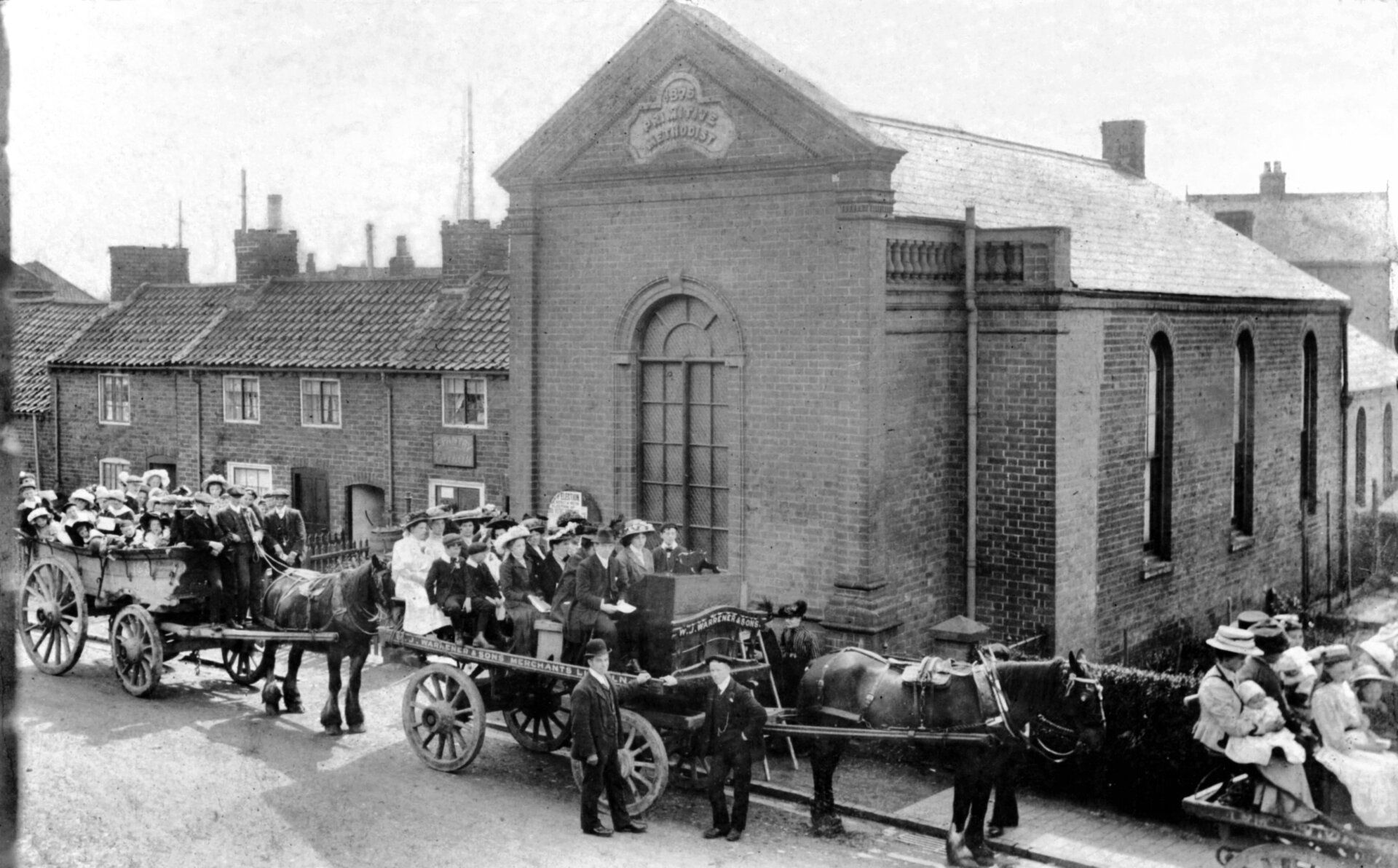Memories of Albert (‘Tab’) Smith.
Mr Smith was born at Ivy Cottage, Gainsborough Road, in October 1904, the 4th of six children. His father was a smallholder, with three cows, a horse, pigs, poultry and a milk round (churns not sterilised bottles!). Being brought up beside the Foss Dyke, he remembers how busy it was with commercial traffic, with the sailing barges bringing goods like the 'Egyptian beans' for sheep food to Lincoln, and taking machinery back to Hull.
The prevailing wind usually meant that the sails could only be used when travelling east. A pair of horses could be hired from Torksey, taking 1½ hours to reach Saxilby – what a different pace of life! Later the steam tug boats pulled a string of 5 or 6 barges.
Mr Smith remembers seeing the pipe line from Elkesley being laid for Lincoln’s water supply (1908-10). Trenches were dug by navvies, many of them Irish, who slept rough in barns or in the pipes, and spent all their wages on ale on Saturdays. One member of each gang would act as cook.
Farm workers did a long day's work on the land, and then would be ready to do another 2 hours work in the evening in return for two pints of beer.
At the age of four, he went to the Infant School in the High Street, where there was just one classroom, and later moved to the school by the church until he reached the leaving age of 14 years. All the children went home for a midday meal, with a break from 12.00 to 1.30. He had a mile to walk each way, so school meant four miles walking each day (how different now!).
Mr Smith was apprenticed as a grocer with the Co-op, and later had his own shop in the village High Street. (I well remember buying broken packets of crisps and biscuits from him).
Albert married Kathleen Mary Holmes at Ingham on 28th April 1940.
In the Second War he was a full time policeman for 5½years, and supervised the 'specials' who sat up on the church tower watching for spies signalling to enemy planes. He won a commendation and star for making an arrest (of a thief not a spy!) but he never wore it, out of respect for the memory of his two brothers killed in the First War.
Saxilby was far more self-sufficient than it is now. Bridge Street and High Street were lined with traders as various as saddlers, blacksmiths, bakers, garage, cycle shop, stables for coal horses, plumber, grocers, printers, builder, butcher, and a tailor who sat cross-legged in his shop opposite the end of William Street.
Memories of Kesteven Sidings -

